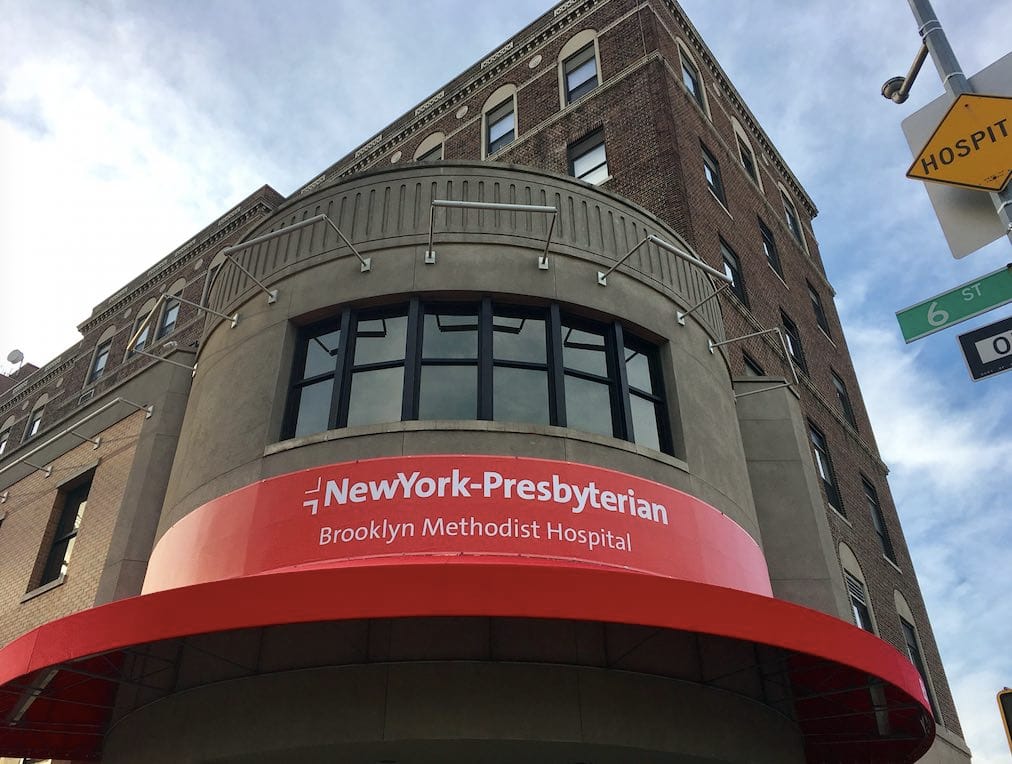Home Births In Demand As Hospitals Shut Partners Out Of NYC Delivery Rooms


By Reuven Blau, originally published in THE CITY.
When Hannah Mermelstein heard that NewYork-Presbyterian Brooklyn Methodist Hospital was no longer allowing partners into child birthing rooms because of the coronavirus, she cried all day — then scrambled to come up with a plan.
Mermelstein’s pregnant partner, Gretchen Virkler, 36, is due in two weeks and was going to use that Park Slope medical facility.
“We were freaking out trying to figure out what to do,” Mermelstein, 40, of Bay Ridge, recalled after hearing the news on Monday. “We toyed with leaving the state.”
Now, the couple, with the help of a midwife, plans on a home birth.
Methodist is just one of many private hospitals that have banned any support people like spouses, partners and family members from birthing rooms due to COVID-19 containment measures — sparking a surge in inquiries for home deliveries, local doulas and midwives say.
On Sunday, NewYork-Presbyterian/Weill Cornell Medical Center, which includes Methodist, blocked all visitors. Mt. Sinai Health System announced a similar ban the next day.
Supporters Supported
The city’s 11 public hospitals, as well as some others throughout the city, continue to allow one support person in the delivery room.
“The decision made by our public hospitals is: Partners should be allowed for the process of labor and when a woman is giving birth,” Mayor Bill de Blasio told reporters Tuesday.
A change.org petition — started by a doula — is urging the mayor and Gov. Andrew Cuomo to force all hospitals to allow mothers-to-be to bring along “a spouse, partner or other person.”
The petition, which had 414,250 signatures as of Wednesday afternoon, notes New York State Department of Health guidelines “determined a support person … is essential to care for the patient during labor, delivery and in the postpartum period.”
‘Demand Is Pretty High’
Meanwhile, doulas and midwives throughout the city say they’ve been inundated with requests to switch over to a homebirth.
“I’m very stressed this morning,” said doula Evelyn Alvarez, noting one of her clients, a single mother, went into labor and to Mt. Sinai Hospital by herself.
“I just feel terribly for her,” Alvarez said Wednesday. “We’ve been texting since 4 a.m.”
Two of her other three clients due to give birth this month are now looking into home birth as well, she added.
“In a normal world, without a pandemic, I might only do a few a year, but right now the demand is pretty high,” said Christiane McClosky, of City Midwifery, who plans to assist Virkler in the two-bedroom apartment the couple shares with their 4-year-old.
Some doulas and midwives caution against suddenly switching to a home birth plan.
“People who plan home birth have done the emotional labor for a massive medical moment happening in your living room,” said doula Laura Vladimirova.
“When it works it’s magical, but switching at 39 weeks because you are afraid of the hospital might not be a good idea,” added Vladimirova, who is also the director of the women’s center at the Jewish Community House of Bensonhurst.
One of her clients expected to deliver this month moved to a New Jersey hospital where a partner is allowed into the room, she said.
Home births are rare, accounting for 1.6% of all deliveries nationwide, according to federal statistics.
The American College of Obstetrics and Gynecology recommends that women who choose home birth be aware of the risks, including “a more than twofold increased risk of perinatal death,” the group says on its website.
Supporters of homebirth during the pandemic point out that evidence also shows that continuous one-on-one emotional support provided by a partner or doula is tied to better birth outcomes.
So far, limited studies have not shown any increased risk to pregnant women or their children from the coronavirus.
Got To Be There
Mermelstein and her partner say they will move from home to Maimonides Medical Center — where their midwife has admitting privileges — if serious complications arise. The Borough Park hospital still allows one support person in birthing rooms.
They decided against just changing hospitals, in part because they fear more private medical centers will implement similar partner bans. They also are worried that hospital staff will be strained due to medical personnel dedicated to helping COVID-19 patients.
“Our top priority is for me to be there,” said Mermelstein, noting they plan to meet with the midwife on Friday.
Home births run $8,500 to $11,000 — a fee that must be covered by private insurers, according to state law. The cost is approximately the same as a hospital delivery, said McClosky, a midwife.
She brings a bag of tools that includes clamps, scissors and small forceps. She also carries medication to stop bleeding, as well as sutures and lidocaine.
Mermelstein and Virkler, who is a postpartum nurse at Maimonides, had been thinking about a homebirth before the pandemic. This week they bought a home birth kit online that includes items like a bed cover, baby hat and oral vitamin K for the newborn.
“We were thinking,” Mermelstein said, “we should probably let the neighbors know so they don’t call the police.”




